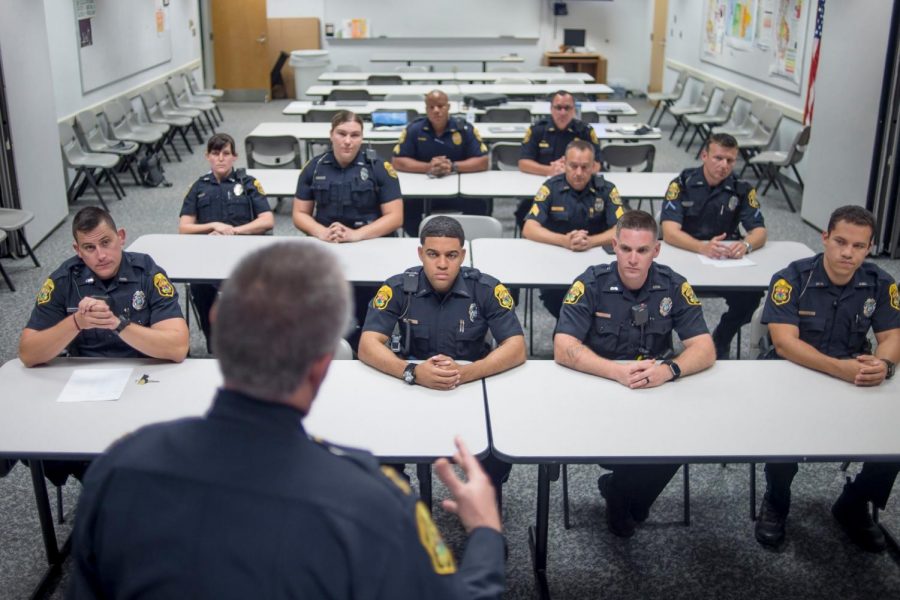A fork in the road of change; Police reform debate continues
September 24, 2020
Due to recent events, especially involving the Black Lives Matter movement, a reoccurring question has once again come back around: How can America’s police force become more secure and trustworthy? Whether that involves reform, defunding, or something else entirely, the people of America are protesting to change the system.
The first path that could be taken is defunding the police. Currently, annual funds for the police force ranges from $100 million in Virginia to as much as $5 billion in New York City (USA Today). Many advocates for this movement believe that shifting money from law enforcement to social services would do the country well, as that could help improve citizen lives (brookings.edu).
Another reason for defunding is the sheer amount of people that have been arrested and charged for crimes that were not committed. A study of the NYPD found that about 90% of people who are pulled aside by the police were not actually guilty of any crime (Brookings.edu).
However, it is not exactly “as simple as ‘take away their money and restart’” according to North Harford Junior Maggie Sadiq. She comments that defunding them will just make a reform more difficult, since they will need a budget for whatever they choose to do.
A Pennsylvanian news source believes reallocating funds reduces possibility of reform, and “that those who argue for defunding police actually want reform and good policing” (penncapital-star.com).
While Sadiq is against defunding police, she still believes a reform is completely necessary. She thinks that if they prove more “psychological evaluation of police recruits to prevent people from becoming cops so they can go on power trips,” then hopefully the people who are officers are more reliable and trustworthy. She said this should also include “checkups” on the officers every year to make sure they are still fit for the job.
Changing academy training is also a possibility, according to Community College Daily. Eloy Ortiz Oakley, chancellor of all 115 Californian community colleges, claims that “we need to ensure that our curriculum reflects the views and backgrounds of the people that we serve in our communities.”
The final path is like the defunding movement, but closer to abolition of the police force. The first path, some believe, is necessary because “we can’t reform police,” (New York Times) and such a large organization has no possibility of change. This side of the argument thinks that there will always be bad cops, and if they are reduced to less than half, then things may change.










